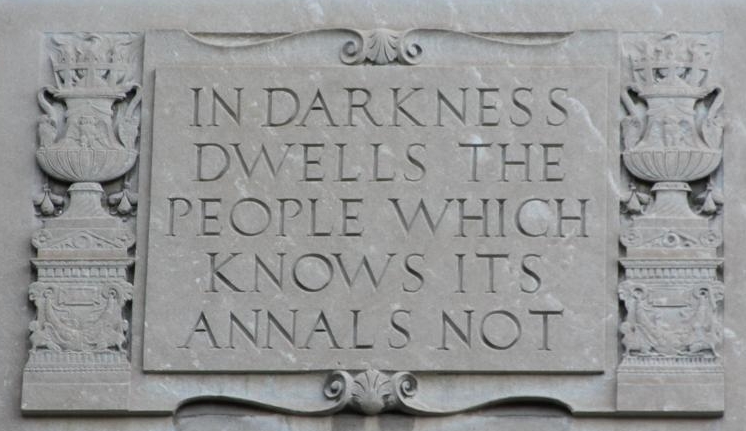Ellen Bauerle
August 2, 2014
In this issue of Amphora we are fortunate to have our Executive Director Adam Blistein’s account of his introduction to classics through a particularly gifted high school teacher and coach, Alfred Morro, and Adam’s comments on what that experience has meant to him. It was serendipity that Adam proposed his article to your Amphora staff for this issue, but his essay also fits nicely with another topic that has been under discussion among the APA’s Outreach division: thinking about our origins, about our path to classical studies, and what that tells us.
As I was getting to know social media a while back, and mindful of the colorful situations that people sometimes get themselves into with unfamiliar technology, I was looking for some safe, mild topics of discussion and posting. I got to talking with the smallish group of social media friends I had at the time about how they happened to reach the positions they held as adults—most but not all were college or university professors, and most of them were in North America. Was it a decisive college major? an accident of circumstance? a beloved teacher?
It’s true I had what the social scientists would regard as an iffy sample: it was of course drawing from only those folks who were active on social media, and whom I knew personally, and it was strongly skewed toward 1980s and 1990s MAs or PhDs in classical philology or classical archaeology from the University of Michigan. That is, really not a random cross-section of the APA, or classicists at large.
Since then I’ve tried to incorporate the same question in conversations with some of the many classicists I work with on a daily basis—authors, referees, series editors, scholars at nearby schools including big universities like Michigan State and Chicago, and smaller schools like Kenyon or Oberlin. I’ve managed to broaden the age cohort and school of origin a little, include those with recent PhDs, and involve people from more graduate programs.
But even so, many of the responses tend to fall into interesting and suggestive patterns, and we at Amphora are working to bring you a series of short biographies that we hope will illuminate these patterns. One of the most interesting characteristics we think you’ll see is just how young most of us were when we first thought seriously about the ancient world. Many in academia tend to regard capturing students as majors in the first semester or so of college as an important goal. Some investigation into these short biographies will suggest instead that the Aha! moment happens a lot earlier, and that probably those of us at the level of college or even high school should be working in much closer conjunction with middle school teachers, in order to create a thriving classical ecosystem.
In any case, Adam’s thoughts on his mentor will get us off to a promising start, and in coming weeks and months on the blog and in these pages, under the tag “My Path to Classics,” you’ll hear from teachers at different levels and varied schools, from research professors, from APA officers, and from a few of us with nonprofessorial jobs, in museum studies or publishing or similar. Our hope is that by giving thought to where we have come from and who we are, we will be better placed to consider where we are going. In an era in which national figures can use the humanities as a humorous punch-line, having a clearer roadmap in hand seems a wise step.

Ellen Bauerle (bauerle97@gmail.com) is Senior Editor of Amphora. She is Executive Editor at the University of Michigan Press, where among other things she acquires titles in classical studies, ancient history, and classical archaeology. An Oberlin undergrad, she received her MA and PhD from the University of Michigan, and also enjoyed her time at the ANS and ASCSA.
